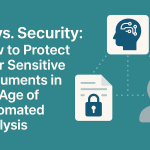Emailng your clients – do I need to worry about consent rules?
Current requirements for obtaining consent before sending someone an email have become increasingly stringent in recent years, driven by concerns over privacy and data protection. In many jurisdictions, including the European Union under the General Data Protection Regulation (GDPR) and similar regulations worldwide, sending unsolicited emails without prior consent is prohibited. Consent must be explicit, informed, and freely given by the recipient, with clear and easily accessible information about the purpose of the email and how their data will be used. Additionally, there should be a straightforward and accessible process for recipients to withdraw their consent at any time. These requirements aim to ensure that individuals have control over their personal information and can avoid unwanted or intrusive communication, promoting a more respectful and privacy-conscious email ecosystem.
What about email marketing?
Email marketing does indeed work within the framework of consent requirements, but it’s important to clarify how it operates within legal and ethical boundaries.
- Sending marketing emails typically involves communicating with individuals who have given explicit consent or have an existing relationship with the sender, such as customers, newsletter subscribers, or participants in previous transactions. This consent is often obtained through opt-in forms on websites, during the checkout process, or through other explicit permission mechanisms.
- Email marketers are required to adhere to various regulations, such as the CAN-SPAM Act in the United States or the GDPR in the European Union. These regulations outline specific requirements for email marketing, including providing recipients with clear opt-out options, identifying the sender accurately, and including a physical address in the email.
- While email marketing relies on consent, it also involves building and maintaining relationships with recipients. Marketers use strategies like providing valuable content, personalized offers, and segmentation to engage subscribers and encourage them to open, read, and interact with their emails. Consent, combined with these relationship-building efforts, allows email marketing to effectively reach and engage an audience while respecting privacy and data protection laws.
Does it mean that I can always write to my current and past customers?
Writing to your current and past customers via email is generally allowed and considered acceptable under email marketing practices, as long as you do so in compliance with relevant regulations and best practices. Here are some key points to keep in mind:
- Consent: It’s important to distinguish between current customers and past customers. Current customers who have made a recent purchase or have an ongoing relationship with your business typically provide implicit consent to receive transactional emails related to their purchases. However, for email marketing campaigns that go beyond transactional messages, it’s advisable to obtain explicit consent or offer them the option to subscribe to marketing emails.
- Past Customers: Past customers who have not explicitly opted in to receive marketing emails should generally not be included in your email marketing campaigns. If you wish to re-engage with past customers, it’s a good practice to send a re-engagement email asking if they would like to continue receiving emails from your business. This helps ensure compliance with email marketing regulations and respects the recipient’s preferences.
- Unsubscribe Option: Regardless of whether you are emailing current or past customers, always provide a clear and easy-to-use option for recipients to unsubscribe from your emails. This is a legal requirement in many jurisdictions, and failure to do so can result in violations of email marketing regulations.
- Content and Frequency: When emailing customers, provide valuable and relevant content that aligns with their interests and preferences. Be mindful of the frequency of your emails to avoid overwhelming recipients with too many messages.
- Data Protection Regulations: Ensure that you are in compliance with data protection regulations that may apply to your customers, such as the GDPR in the European Union or the CAN-SPAM Act in the United States. These regulations impose specific requirements on how businesses handle customer data and send marketing emails.
In summary, while you can generally write to your current and past customers via email, it’s crucial to do so in a way that respects their preferences and complies with relevant regulations. Obtaining explicit consent for marketing emails from individuals who have not previously opted in is a best practice for building a strong and compliant email marketing list.
What if I email people without their consent?
Emailing people without their consent can have several consequences, both legal and reputational. Let me outline some of the potential consequences that individuals and businesses may face:
- Legal Consequences:
- Fines and Penalties: Depending on the jurisdiction and the applicable regulations (e.g., CAN-SPAM Act, GDPR, CASL), sending unsolicited emails can result in substantial fines and penalties. These fines can vary widely, from thousands to millions of dollars, depending on the severity of the violation.
- Civil Lawsuits: Recipients of unsolicited emails may have the right to file civil lawsuits against senders for damages, particularly if they can demonstrate harm caused by the unwanted emails. This could lead to costly legal battles and potential financial settlements.
- Reputation Damage:
- Loss of Trust: Sending unsolicited emails can harm your reputation and erode the trust of customers and potential clients. Negative publicity or social media backlash can result in lasting damage to your brand’s image.
- Email Blacklisting: Repeatedly sending unsolicited emails can lead to your domain or IP address being blacklisted by email service providers, making it difficult to deliver emails to legitimate recipients.
- Regulatory Investigations:
- Government Agencies: Regulatory bodies responsible for enforcing email marketing laws may investigate complaints and violations, potentially leading to legal actions, fines, or enforcement actions against your business.
- Spam Reports and Complaints:
- Recipients who receive unsolicited emails may report them as spam to their email providers. A high volume of spam complaints can negatively impact your email deliverability rates and make it more challenging for legitimate emails to reach recipients’ inboxes.
To avoid these consequences, it’s crucial to comply with email marketing regulations and obtain explicit consent from individuals before sending them marketing emails. Additionally, always provide a clear and easy way for recipients to unsubscribe from your emails and promptly honor their requests to be removed from your mailing list. It’s essential to stay informed about email marketing laws and best practices, as these regulations can vary by region and change over time.
Sending emails via MyDocSafe
MyDocSafe specializes in transational email distribution (both encrypted and unencrypted), therefore we do not offer specific tools for obtaining or withdrawing consent. Here are your options for sending emails to:
Existing portal users
- If you have invited a client to a portal and that invitation has been accepted, this means that your client has implicitly accepted that they have a business relationship with you. You therefore can email them as long as they are an active portal user. Your options include sending individual unencrypted messages, or build emails that can be sent to all portal users all at once. For more confidential messages, use our encrypted email plugin
Former portal users
- One could argue that once a client is removed from a portal, they no longer are your client. This may or may not be the case. Excercise caution when emailing former clients as described above. MyDocSafe does not let you email users who are not portal users unless you send them a document for signing.
Someone new
- You can send a quote, a business proposal, a questionnaire, a portal invite or a document for signing to anyone with a valid address even if they have not heard from you before. We assume that those requests are transactional emails and do not require specific consents reserved for marketing emails. The only exception here might be wide distribution of questionnaires. We specifically did not make it easy to send large numbers of questionnaires to users who have never heard from you. You can however create a public link to a questionnaire and distribute it through your email marketing software (make sure you then follow the consent rules).




